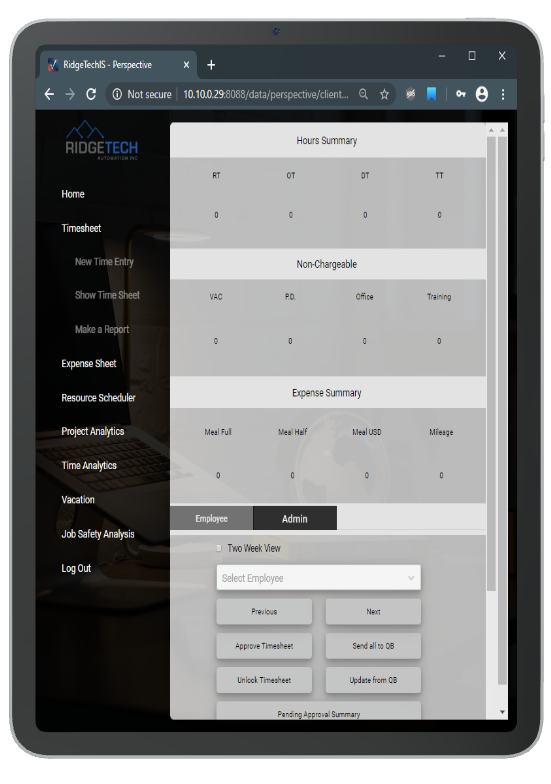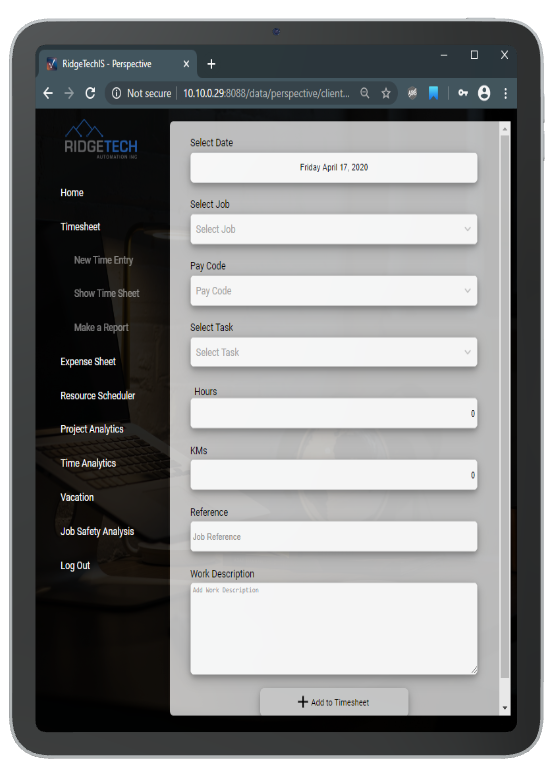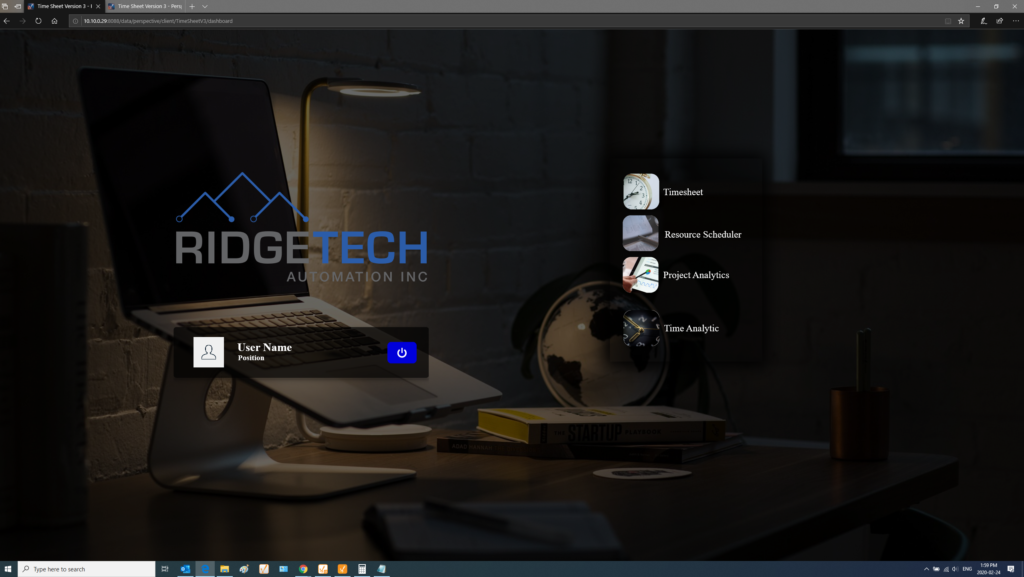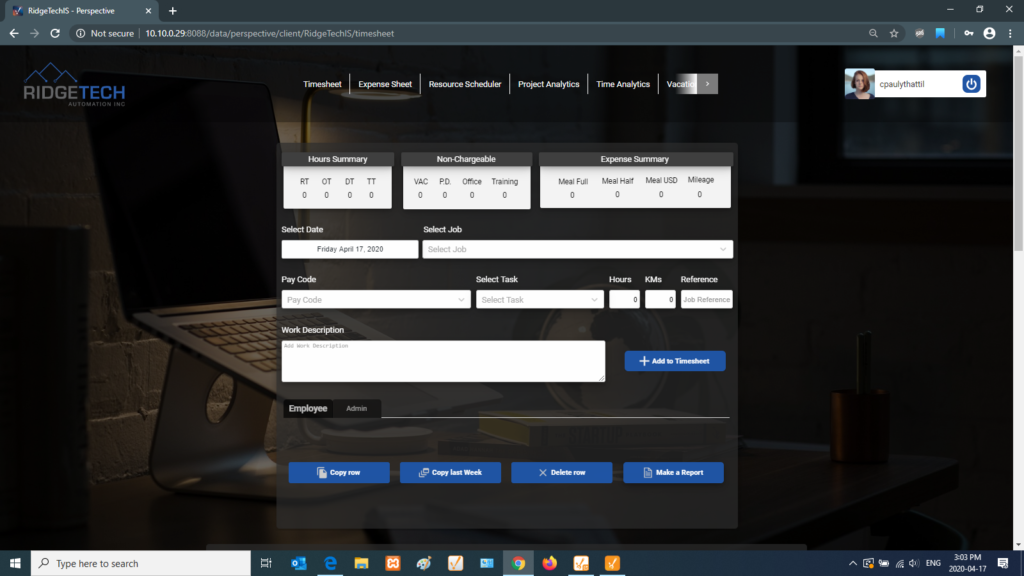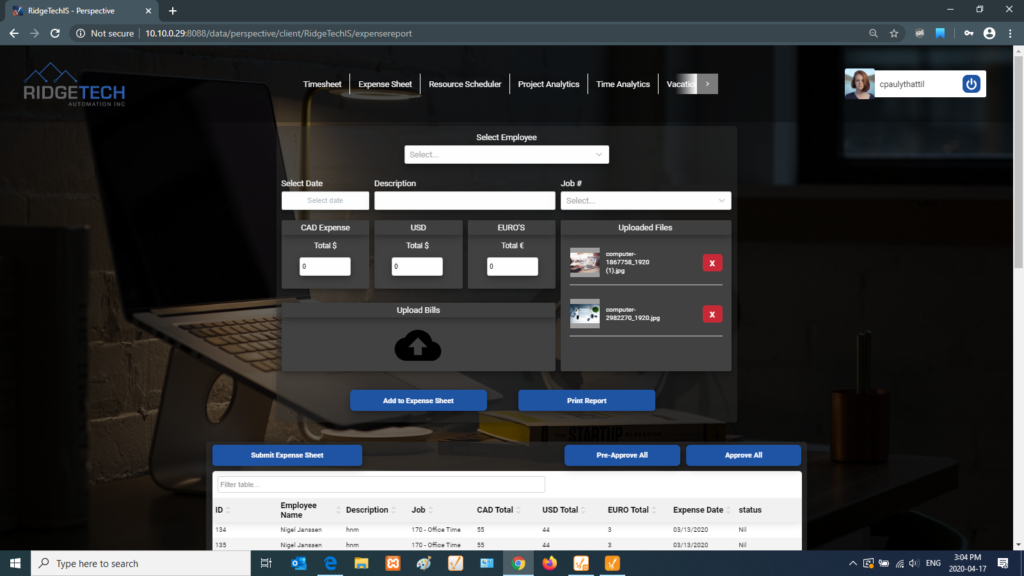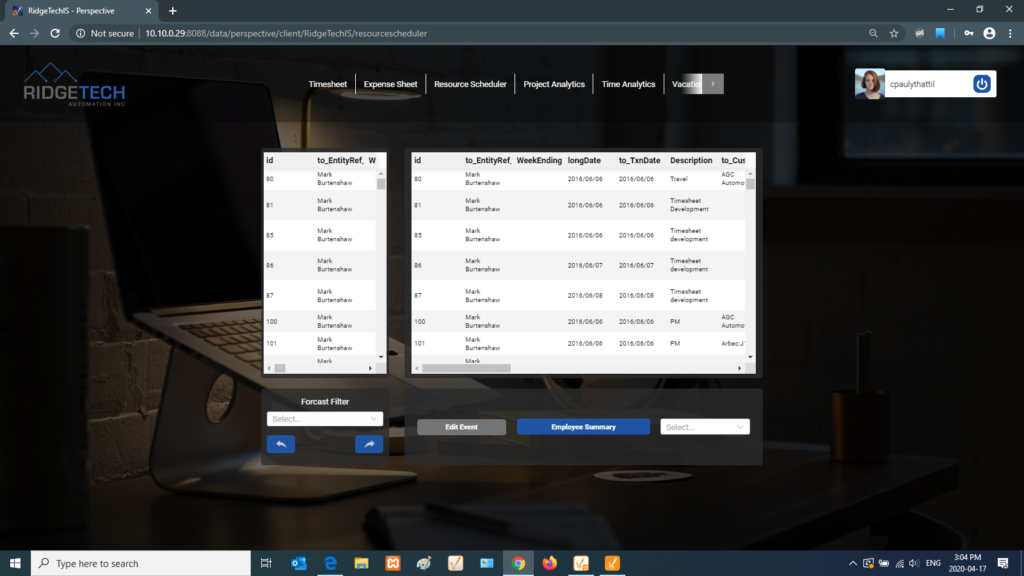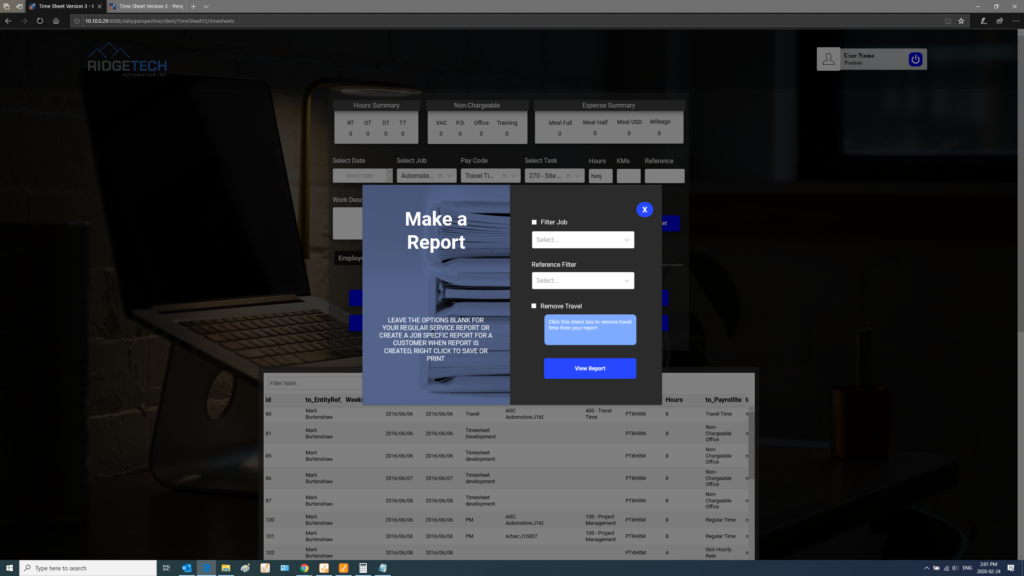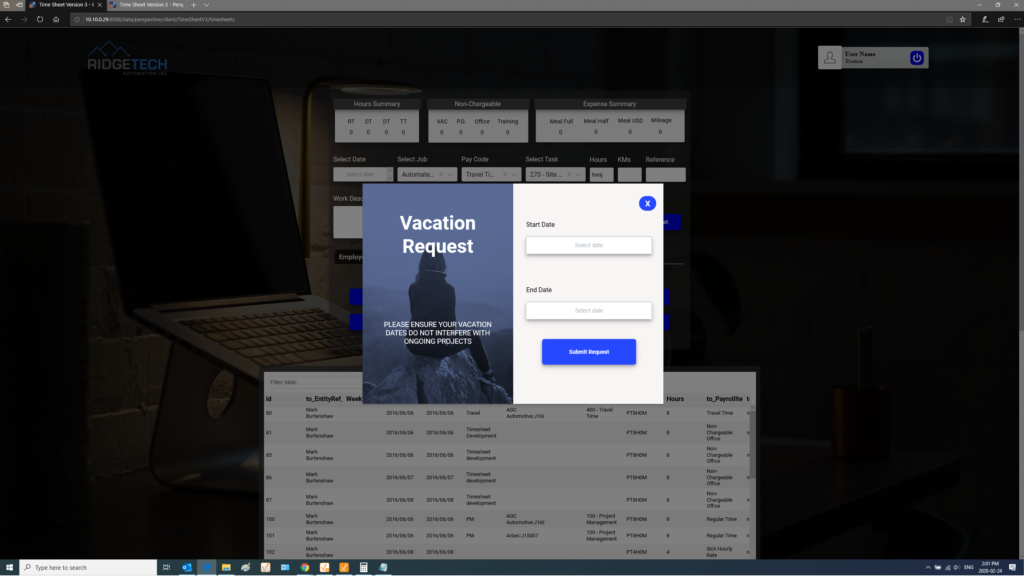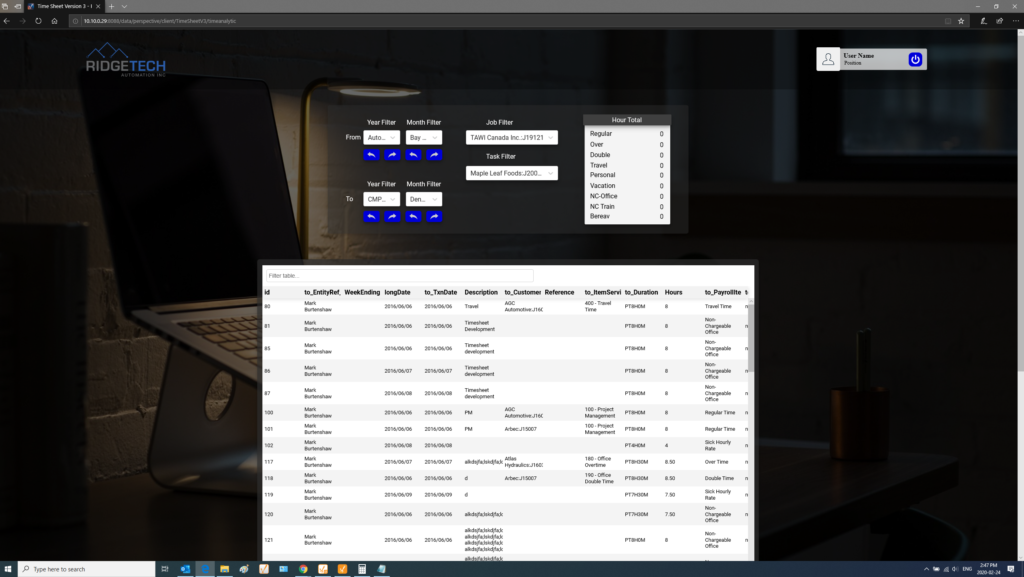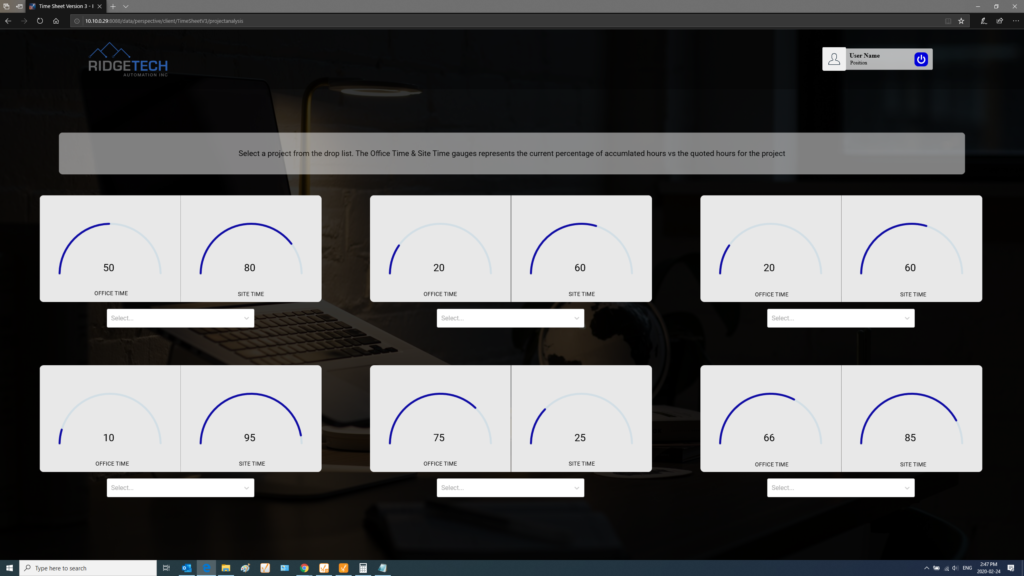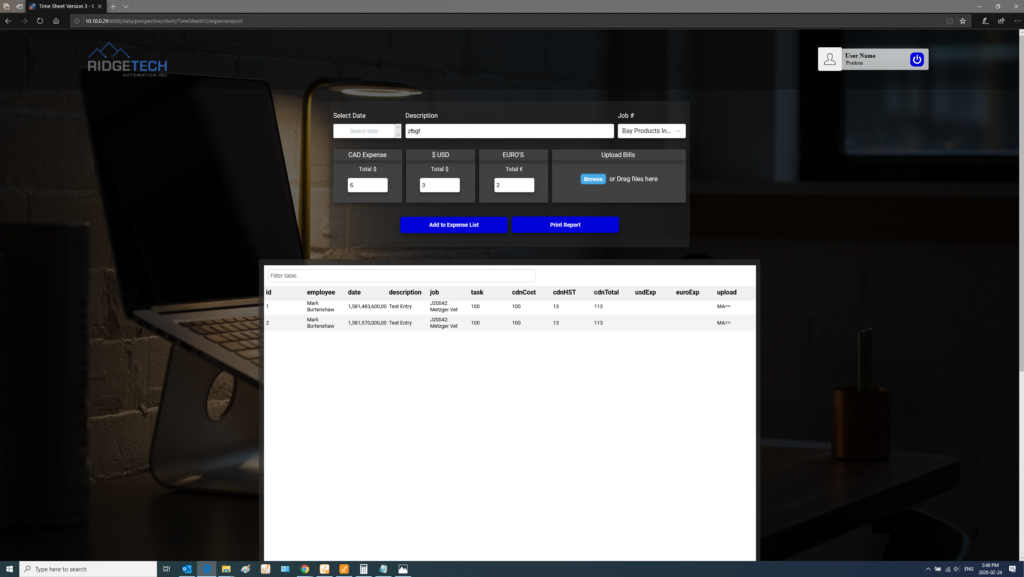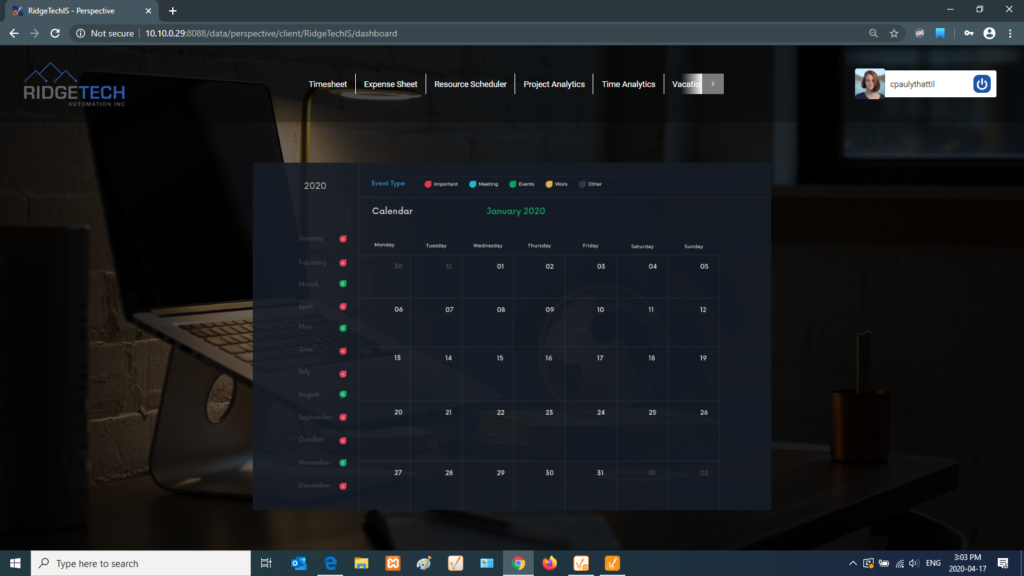UI Transformations Before & After
Slide the blue line
Before Redesigned
Outdated ERP software with clunky interfaces, hindering user efficiency. Fragmented processes for staff management, expenses, and project tracking.
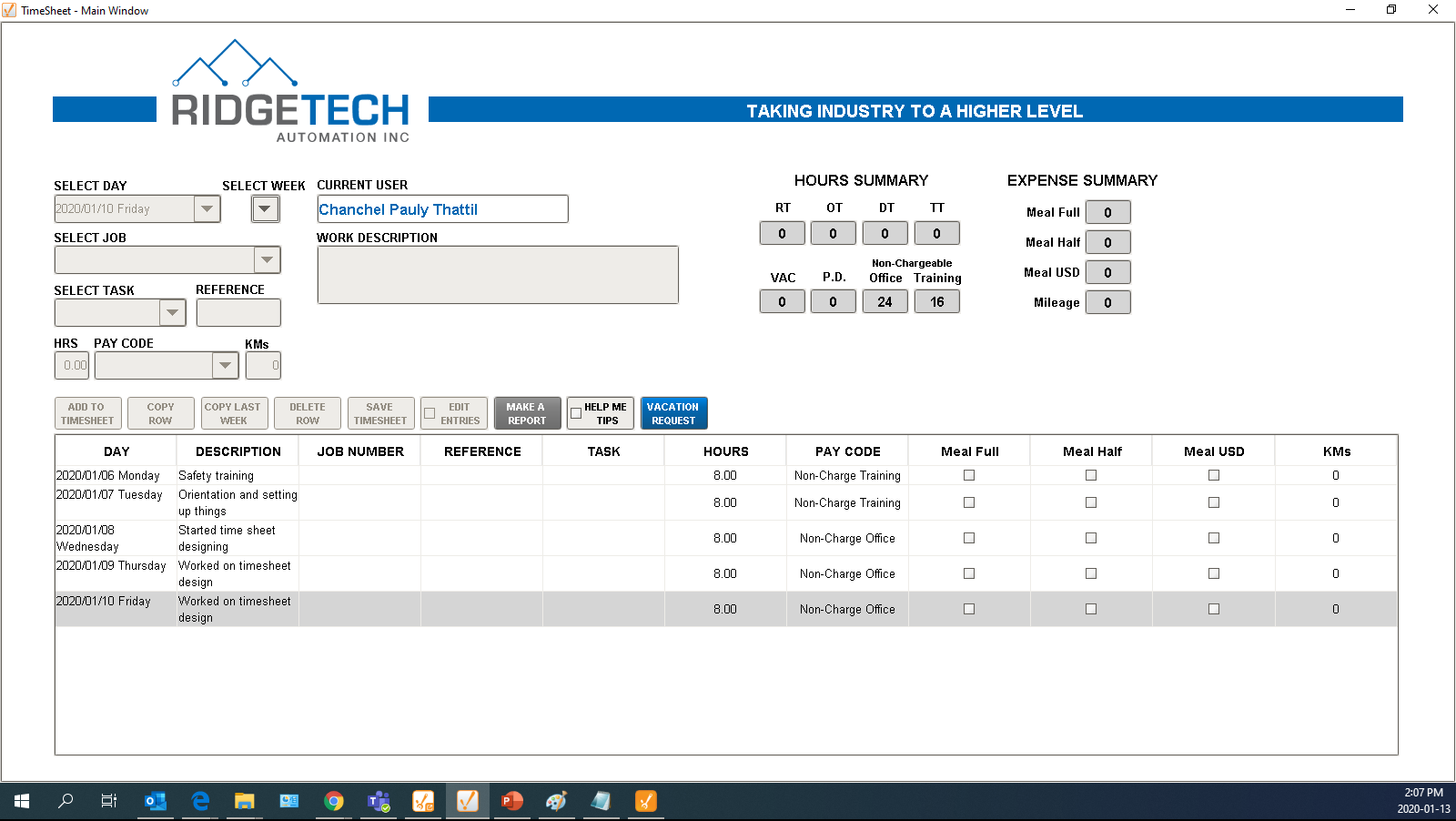

After Redesigned
Transformed into a sleek web-based application. Intuitive navigation, streamlined functionalities, and seamless integration for staff management, expenses, and project tracking.
Project Overview
Client Background
The company relied on a desktop-based ERP system accessible only within the local network, posing challenges for offsite employees needing crucial access. This limitation hindered productivity and efficiency for onsite workers unable to tap into the ERP’s functionalities remotely. Also, the outdated and restrictive design of the previous ERP system exacerbated these challenges.
Objective
Transform the outdated desktop-based ERP into a responsive, web-based, user-friendly platform, enabling access from any location or device. Leveraging the Ignition platform’s new web development module was integral to achieving this transformation.
Approach
Understanding Needs
Engaged stakeholders to comprehend the limitations of the existing ERP and identify requirements for a more accessible and responsive solution.
Responsive Design Focus
Prioritized the implementation of a responsive design approach, ensuring the new ERP could seamlessly adapt to various devices—desktops, laptops, tablets, and mobile phones.
User-Centric Redesign
Embarked on a user-focused redesign process, aiming to streamline processes and enhance usability across devices for an improved user experience.
Solution
Web-Based Responsiveness
Revolutionized the ERP from a desktop-bound system to a dynamic, web-based application. The new ERP’s responsiveness allowed employees to access critical functionalities from any device with internet access, transcending the previous limitations restricted to computers.
User-Friendly Interface
Crafted an intuitive interface that facilitated easy navigation and accessibility across devices. The redesigned ERP simplified tasks related to staff management, expense tracking, and project monitoring.
Low Fidelity Wireframes
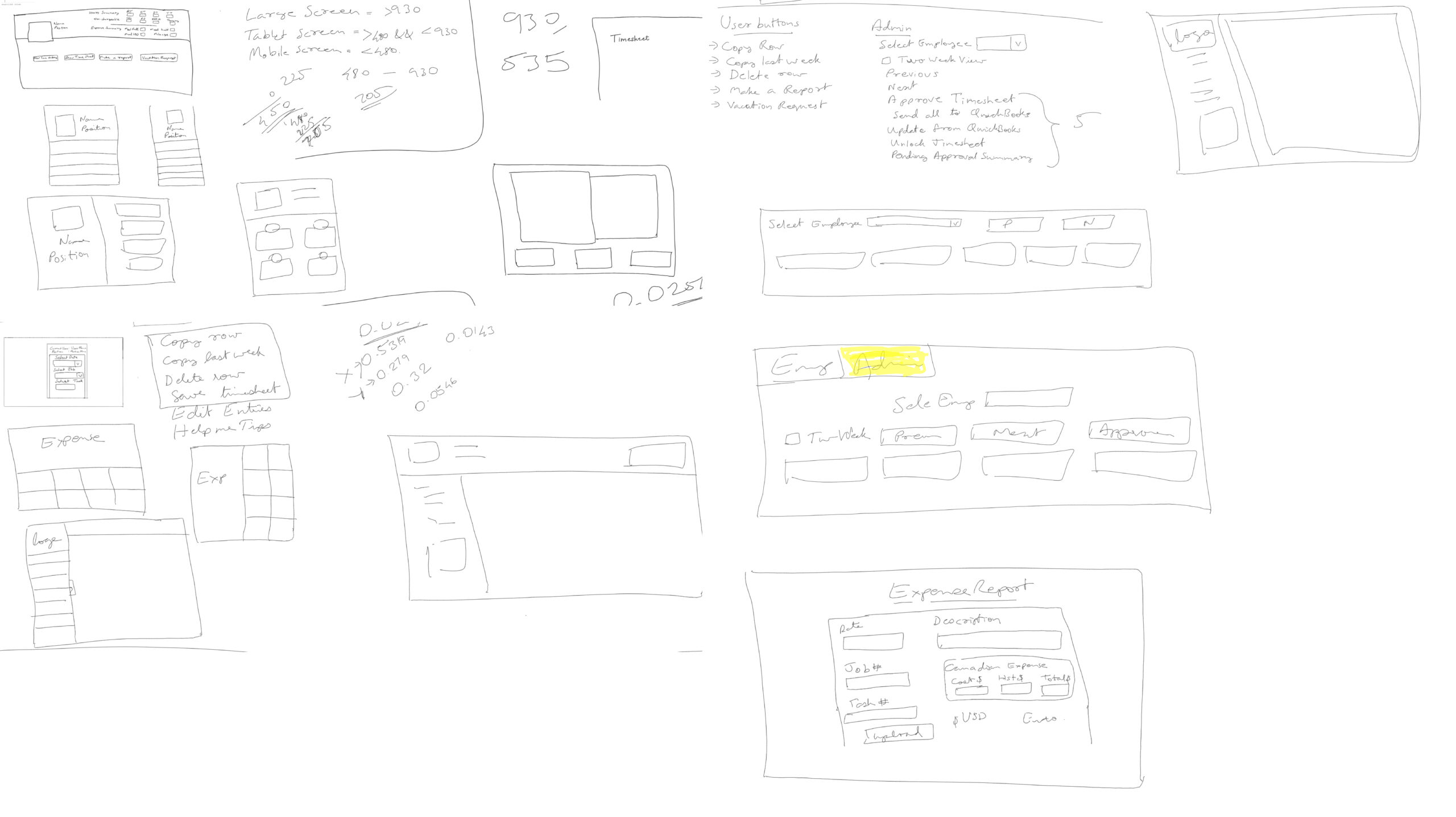
High Fidelity Wireframes
Mobile UI
Tablet / iPad UI
Desktop / Laptop UI
Outcomes
Enhanced Accessibility
Empowered employees with the freedom to access critical ERP functionalities from any device, enhancing flexibility and productivity.
Improved Efficiency
Streamlined processes and intuitive design led to increased efficiency in daily operations, overcoming the limitations of the previous system’s computer-bound interface.
Positive User Response
Acclaimed for the newfound accessibility and responsiveness, resulting in smoother workflows and heightened user satisfaction.
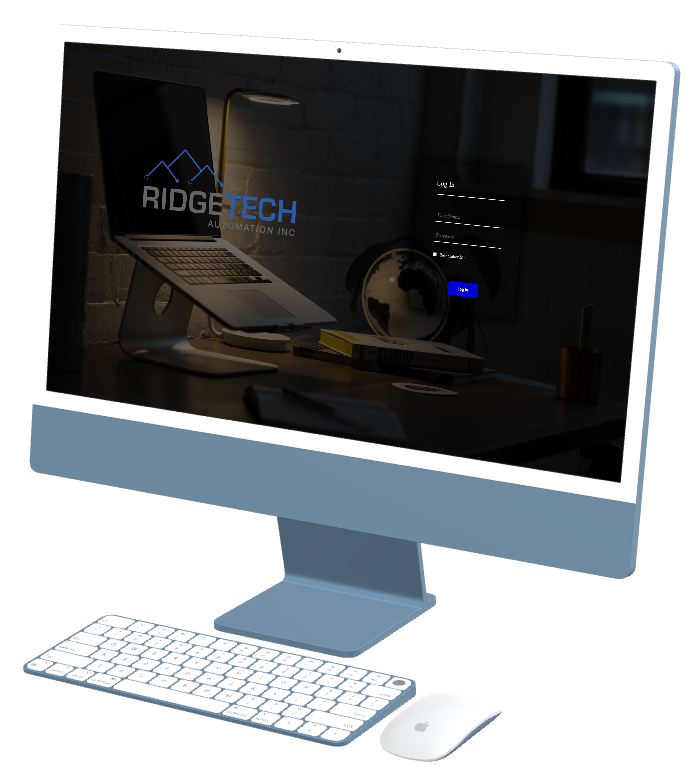
Conclusion
The transformation from a computer-restricted ERP to a responsive, web-based platform has redefined accessibility and productivity for employees. The emphasis on responsive design principles liberated the system from device constraints, fostering a more agile and adaptable work environment. This evolution marks a significant leap toward a user-centric, efficient, and accessible ERP solution.






